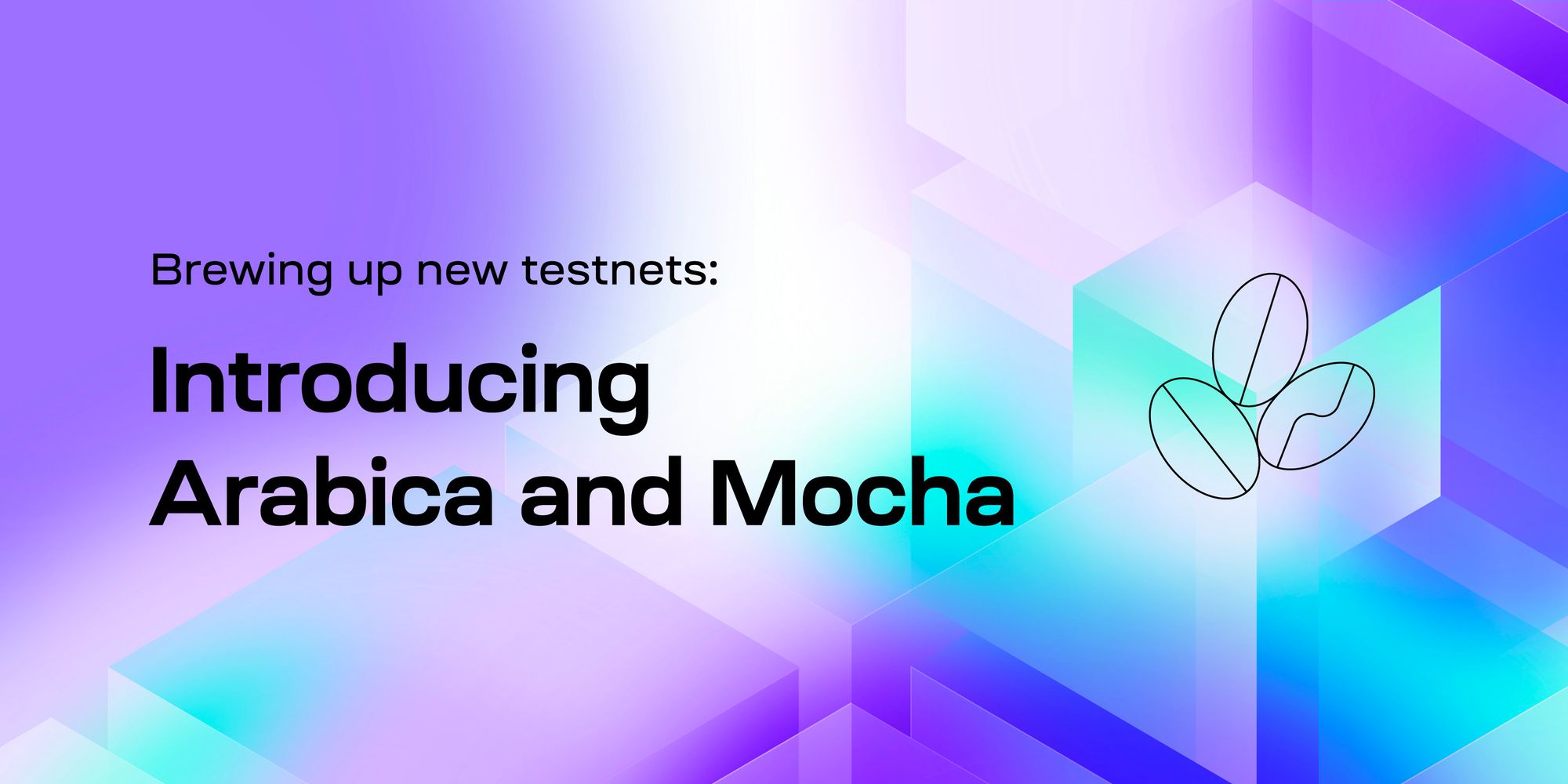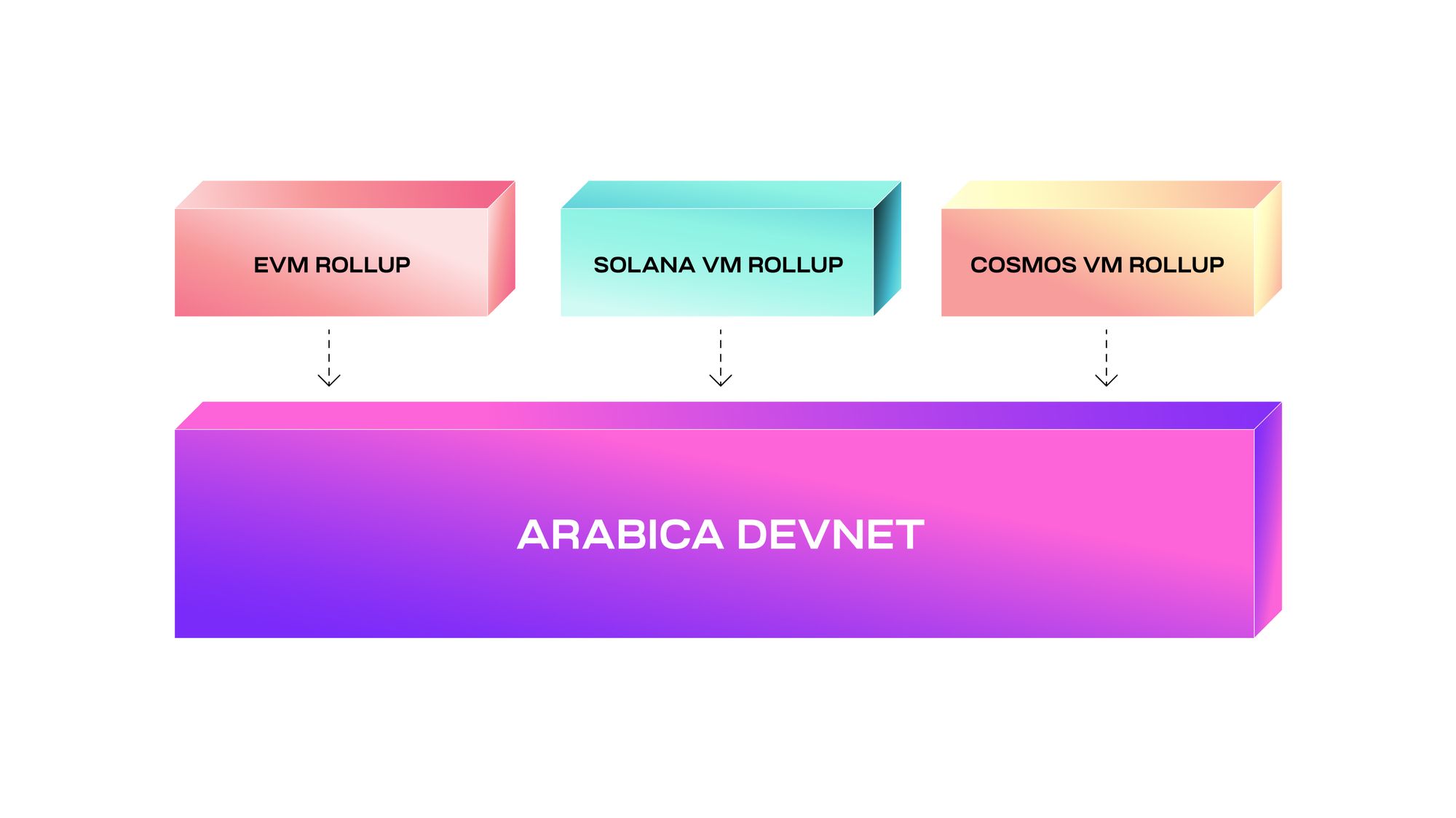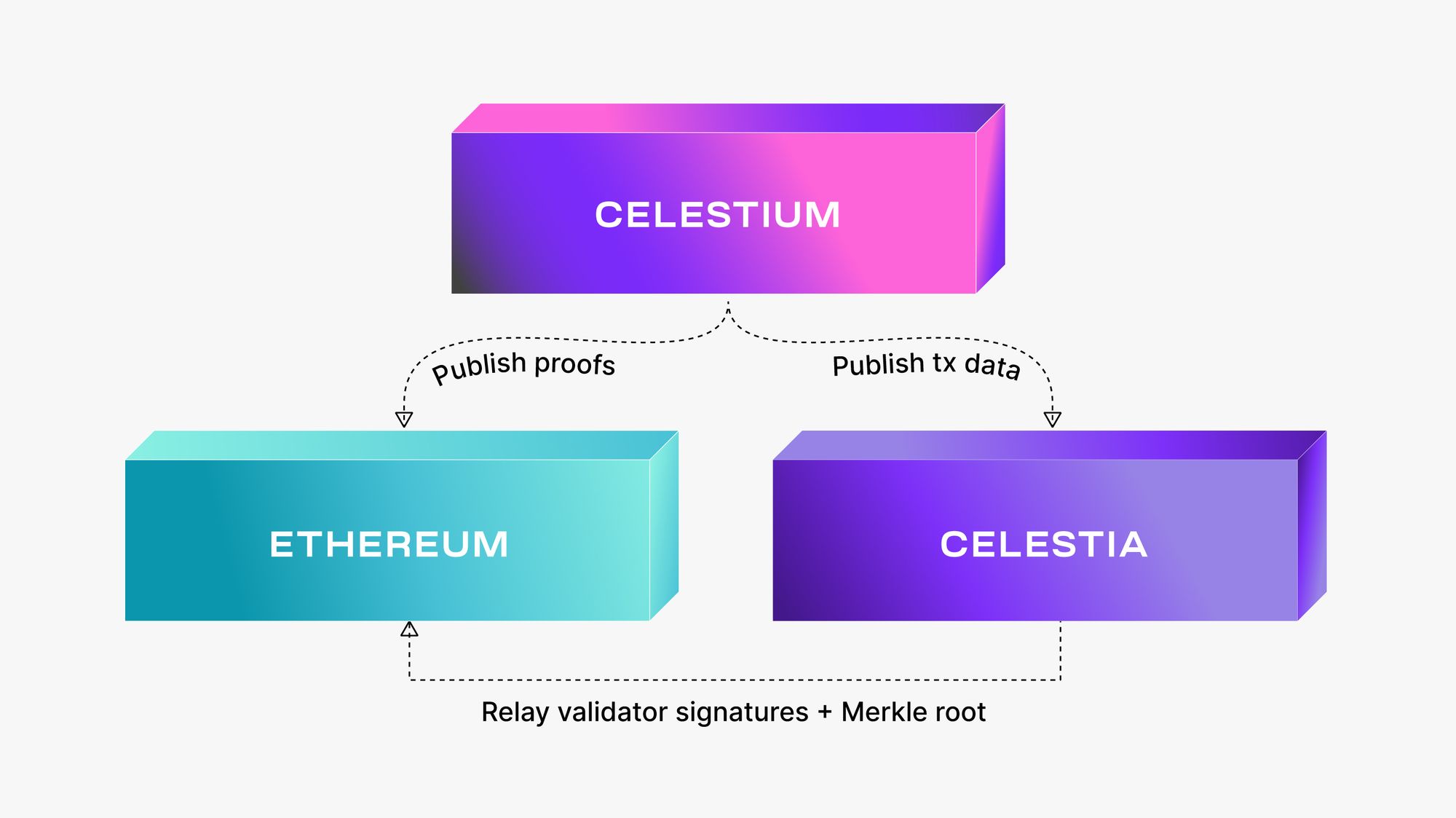Brewing up new testnets: introducing Arabica and Mocha
Modular testnets bring a faster erasure coding library that speeds up the encoder by 30x

After months of hard work by our engineering team, we have some exciting updates to share.
Arabica Devnet
We launched Arabica Devnet, a developer-focused regular testnet with no incentives. It's an ideal sandbox for developers to experiment rollups that build on Celestia’s latest features. You can get started by checking out Rollmint in our docs here.

Validators will not be able to operate on Arabica because of its scope as a developer-focused devnet. Arabica’s primary purpose is to allow developers to deploy their sovereign rollups on Celestia testnet with the latest features. Currently, validators can only operate on Mamaki. However, we do have some Mamaki updates in the following section!
Developers can get started with our list of tutorials to deploy Cosmos-SDK sovereign rollups with the option to integrate other execution environments like CosmWasm and the EVM.
Give it a try and check out our developer resources!
Mocha Upgrade
We are planning the Mocha upgrade, a Hard Spoon (not a Hardfork) that will replace our existing Mamaki Testnet. As a reminder, neither Mocha nor Mamaki are incentivized testnets. Thus, there are no incentives for running a validator on those testnets.
Validators on Mamaki Testnet will need to participate in the upgrade process by switching over to validating on Mocha, which is outlined here. Mamaki’s state will be maintained on Mocha, so all validators and users will have the same balances and keys at the snapshot date. Validators will need to ensure they set up two new flags on Mocha that are needed: `orchestrator-address` and `evm-address`.
Arabica Devnet has already been upgraded with the Mocha specs. After the Mocha upgrade, data availability nodes will connect to the Mocha chain-id and the block height on Mocha will start from 0. In addition, the existing state will be preserved, so for application developers who have deployed on Mamaki, they would simply need to connect to a Mocha light node. Just keep in mind the block height will be reset on Mocha. Mocha is LIVE, so validators can begin migrating to it.
Mocha brings a host of exciting new changes, including:
- Update to cosmos-sdk v0.46.0 and downgrade Tendermint to v0.34.20 (#472)
- Increased share size of 512 bytes (#850)
- Improved go-native encoding library: leopard (#987)
- Universal Share Prefix (ADR007)
- Non-interactive defaults (ADR003)
- Changes to the genesis params
Faster Erasure Coding Library
The testnets provide a faster erasure coding library. We commissioned Orijtech to implement the leopard erasure coding algorithm in Golang. It resulted in a 30x encoder speedup.
Thanks to various improvements to @CelestiaOrg's block data encoder including parallelization, sha256-simd, and @orijtech's leopard (Reed-Solomon) Go port, we can encode+merkle commit to 4Gbit/s of 134MB blocks, equivalent to the write speed of an SSD https://t.co/pBq7Wsfszw
— Mustafa Al-Bassam 🧱 (@musalbas) September 15, 2022
The Quantum Gravity Bridge
The Mocha upgrade brings the first steps of the Quantum Gravity Bridge (QGB). The QGB will provide a way for Ethereum L2s, like Optimism, to use Celestia as a source of low-cost, off-chain data availability. We call this new type of L2 a Celestium.

A Celestium will publish transaction data to Celestia, which will then relay attestations of data availability to Ethereum using the QGB. The attestations serve as proof that the data is available on Celestia. Since the Celestium doesn't post transaction data to Ethereum, it saves on costs while retaining access to Ethereum for settlement.
It’s important to note that while validators on Mocha need to add two new flags to enable the QGB - it will be activated later in a future update on Mocha.
Community Call and Next Steps
We will reach out to coordinate the Mocha Upgrade with our validators very soon. Keep an eye out for announcements in Discord.
We will also host a community call on December 15th (1:00 PM EST / 6:00 PM UTC) to discuss those updates and answer any questions for the community. You can check out the agenda here and join the call. We look forward to seeing you there!
